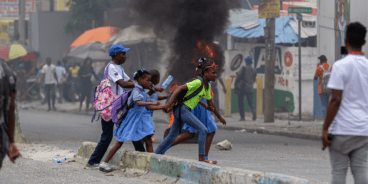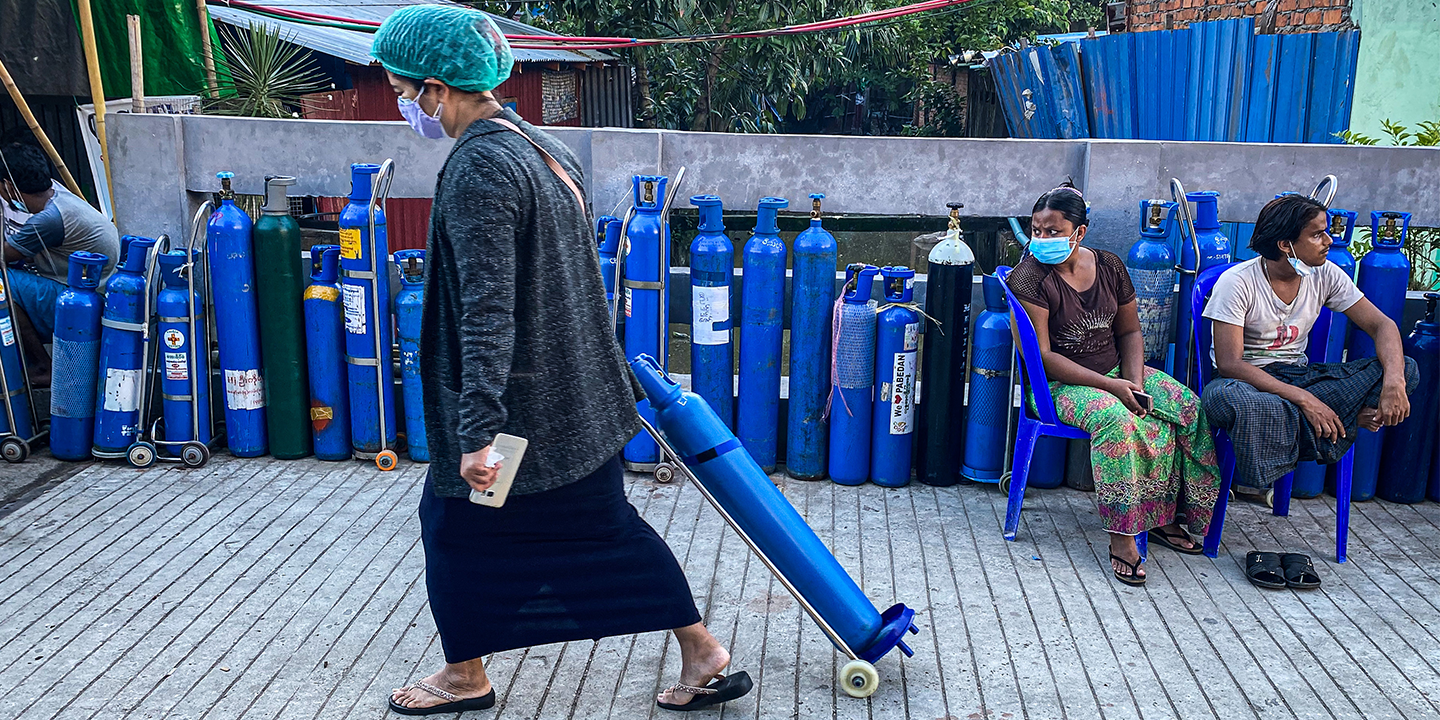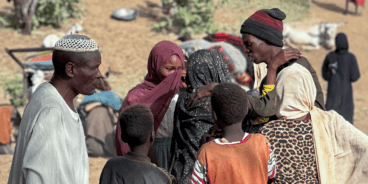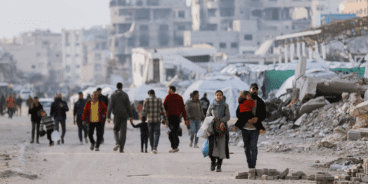

Atrocity Alert No. 261: Myanmar (Burma), Nigeria and Israel and the Occupied Palestinian Territories
Atrocity Alert is a weekly publication by the Global Centre for the Responsibility to Protect highlighting situations where populations are at risk of, or are enduring, mass atrocity crimes.
COVID-19 SURGES IN MYANMAR AS MILITARY JUNTA ATTACKS HEALTH WORKERS
Myanmar is in the midst of a catastrophic wave of COVID-19 infections, with the number of new cases rising daily and the positivity rate reaching more than 30 percent among those tested for the virus. The country’s health system is unable to deal with the surge in infections and deaths.
Since the military deposed Myanmar’s civilian-led government on 1 February, they have reversed any progress made in containing COVID-19. The security forces’ violent crackdown, which has killed more than 900 civilians, has driven many medical professionals underground. On 7 July the UN Special Rapporteur on the human rights situation in Myanmar, Tom Andrews, warned that, “Myanmar is at grave risk of becoming a COVID-19 super-spreader state, impacting untold numbers of people both inside and outside of its borders.”
Since the coup, the security forces have targeted healthcare professionals treating injured protesters and have issued hundreds of arrest warrants for doctors and nurses accused of supporting the civil disobedience movement. At least 12 doctors have been killed by the military since February, while the World Health Organization has recorded at least 240 attacks on Myanmar’s health care workers, ambulances and medical facilities. The junta has also arrested the head of the COVID-19 vaccination campaign, who was appointed by the former government.
The security forces have also occupied dozens of hospitals across the country, in violation of international law, discouraging patients from seeking medical help. Additionally, many people cannot access healthcare due to coup-related curfews and high medical costs, with hundreds of COVID-19 patients reportedly dying at home. Most hospitals that accept COVID-19 patients are now filled beyond maximum capacity.
Hospitals and health clinics are also experiencing a chronic shortage of medical oxygen. At a press conference on Monday, 12 July, a junta spokesperson said that the military has banned factories from selling oxygen cylinders to individuals and directed them to exclusively supply military-controlled medical facilities instead. The military has also been raiding and confiscating medical supplies from some private companies and charities.
Despite the health crisis, the security forces also continue to persecute those resisting the junta. In addition to the 911 people killed since 1 February, more than 5,200 people remain detained for opposing the coup, according to the Assistance Association for Political Prisoners. It is essential that the international community increase the diplomatic pressure on Myanmar’s military, while actively supporting those humanitarian organizations who are trying to confront the COVID-19 outbreak.
MORE MASS KIDNAPPINGS OF CHILDREN IN NIGERIA
Mass kidnappings of schoolchildren by armed extremist groups and criminal “bandits” have become endemic in northern Nigeria. In the latest incident more than 140 students were kidnapped from the Bethel Baptist High School in Kaduna State on 5 July when a group of armed men arrived on motorbikes and overpowered the school’s security staff. This was at least the fourth such incident in Kaduna since March and prompted the state government to announce the precautionary closure of 13 schools. Henrietta Fore, Executive Director of the UN Children’s Fund, said that, “over the past six weeks alone, nearly 500 children were abducted in four separate incidents across the central and northwest parts of the country.”
Attacks on schools are a grave violation of the universal rights of children. An estimated 1,120 schools are now closed across north-west Nigeria due to pervasive insecurity, disrupting the education of over 300,000 children. In the north-eastern states of Borno, Yobe and Adamawa, where the armed extremist groups Boko Haram and the Islamic State in West Africa (ISWA) are still active, 802 schools remain closed and 497 classrooms have been destroyed.
Mass kidnappings have become a lucrative criminal enterprise in Nigeria because the authorities and families of the children often pay ransom, although the government denies doing so. Of the approximately 950 children abducted since December, the majority have returned.
The kidnappings are occurring amidst a broader deterioration of security in Nigeria, with Boko Haram and ISWA increasing their attacks. Armed men stormed the village of Dabna, Adamawa State, on 7 July and killed at least 18 people. Armed bandits are also attacking communities in the north-west, while engaging in cattle-rustling, kidnapping, plunder, rape and murder. On 9 July more than 100 gunmen attacked Faru town in Zamfara State, killing at least 45 people. During June at least 88 people were killed when bandits attacked seven villages in Kebbi State.
School closures are not a viable long-term solution to ensure the safety of children and protect their right to education. The government needs to tackle the root causes of armed extremism and banditry through socio-economic initiatives and political reforms that target poverty, corruption, youth unemployment and the rule of law. In keeping with its 2014 commitment to the Safe Schools Initiative, Nigeria’s federal government should work with local communities to enhance security and bring an end to mass kidnappings and violence against children.
UN REPORT CONCLUDED THAT ILLEGAL ISRAELI SETTLEMENTS ARE A WAR CRIME
In a new report released on 8 July, the UN Special Rapporteur on the human rights situation in the occupied Palestinian territories, Michael Lynk, concluded for the first time that illegal Israeli settlements amount to a war crime. According to Lynk, “for Israel, the settlements serve two related purposes. One is to guarantee that the occupied territory will remain under Israeli control in perpetuity. The second purpose is to ensure that there will never be a genuine Palestinian state.”
The Palestinian territories of the West Bank and East Jerusalem have been illegally occupied by Israel since 1967. There are now close to 300 illegal settlements in Occupied East Jerusalem and the West Bank with more than 680,000 Israeli residents. Israeli settlements continue to expand and according to the UN Office for the Coordination of Humanitarian Affairs, at least 466 Palestinian-owned structures have been demolished or seized by the Israeli authorities since January. Israel’s decades-long occupation has resulted in widespread human rights violations against Palestinians and a two-tier legal system that some have characterized as amounting to the international crime of apartheid.
Special Rapporteur Lynk outlined that “settler implantation” – or transferring parts of a civilian population into occupied territory – constitutes “demographic engineering.” Article 49 of the Fourth Geneva Convention and the 1998 Rome Statute of the International Criminal Court prohibit this practice. He also noted that recent cases in Sheikh Jarrah and Silwan in East Jerusalem are “emblematic” of ongoing forced displacement of Palestinians “with the aim of establishing a Jewish majority in the city and creating irreversible demographic facts on the ground.”
Noting that the illegality of the Israeli settlements has been confirmed by the UN Security Council, General Assembly and Human Rights Council, as well as the International Court of Justice, Special Rapporteur Lynk highlighted that “it is a tragic paradox that, while the Israeli settlements are clearly prohibited by international law, the international community has been remarkably reluctant to enforce its own laws.”
Related Content


Atrocity Alert No. 435: Sudan, Israel and the Occupied Palestinian Territory and Democratic Republic of the Congo
